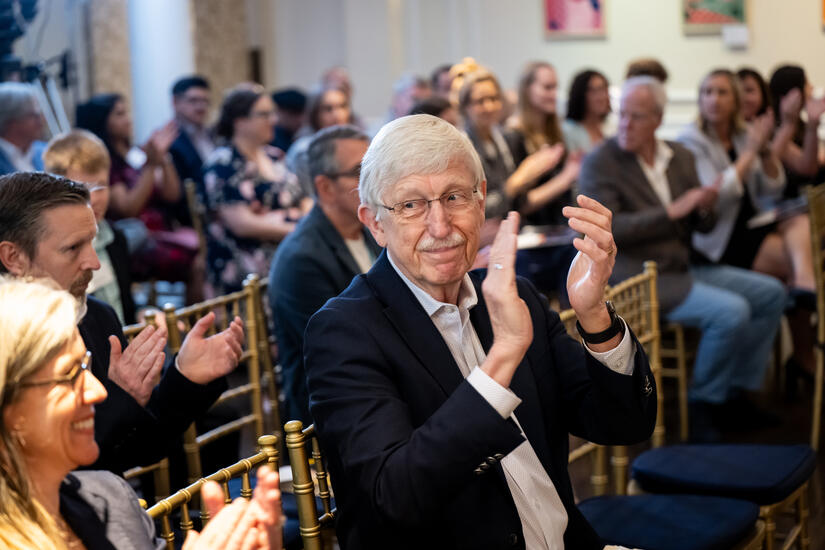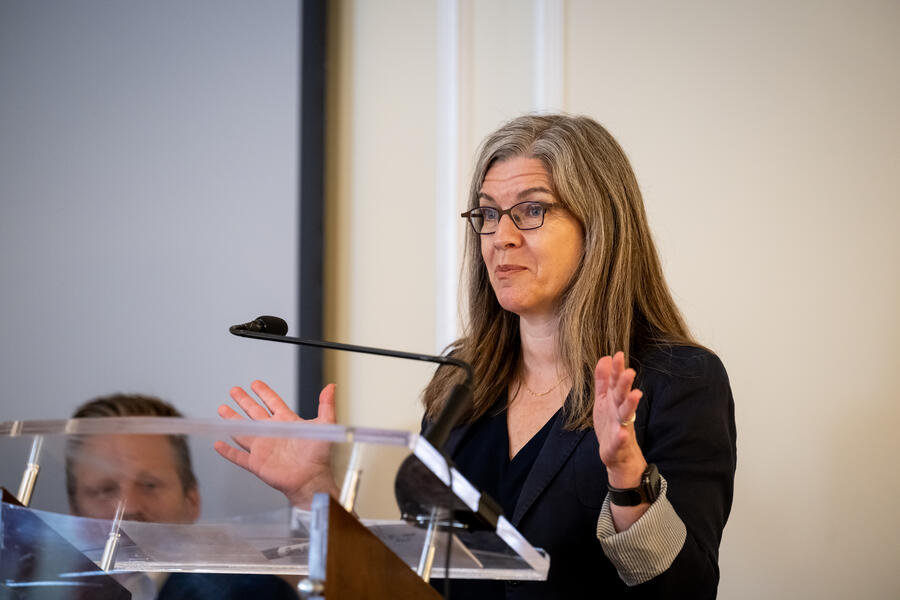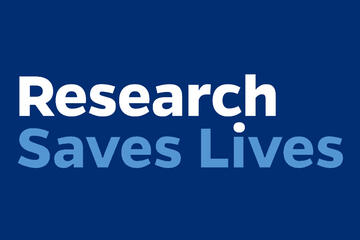It can spawn tumors throughout the nervous system and bone deformities that riddle the whole body with pain. One of the most common rare diseases in the world, the genetic condition neurofibromatosis type 1, or NF1, can cause a wide spectrum of mild to severe symptoms—all stemming from a single mutation on a solitary gene: the NF1 gene on chromosome 17.
A decade ago, many people with NF1 struggled to find an interdisciplinary team of clinicians to treat their complex condition, says Jaishri Blakeley, a neurology professor at the Johns Hopkins School of Medicine and executive director of the JHU-affiliated Neurofibromatosis Therapeutic Acceleration Program, or NTAP. Blakeley spearheaded a mission to change that, launching an ambitious training initiative in 2014 to build a global community of clinician-scientists who specialize in NF1.
On June 20, Blakeley and the neurofibromatosis community celebrated the 10-year anniversary of the initiative, known as the Francis S. Collins Scholars Program in Neurofibromatosis Clinical and Translational Research. The program is named for the physician-scientist and longtime director of the National Institutes of Health who discovered the NF1 gene in 1990 and led the NIH team responsible for mapping the human genome. The event took place at the Whittemore House in Washington, D.C., and paid homage to the program's many successes, while enabling scholars and other clinician-scientists to discuss their work, form new partnerships, and troubleshoot difficulties relating to the federal government's pauses and cuts to medical research funding.
"With the Francis Collins Scholars Program, we've created a pipeline of brilliant, early-career clinician-scientists committed to the cause and to working in an environment that prioritizes collaboration, transparency, and the open sharing of data and information," Blakeley says. "Selection for the program is incredibly stringent—we look for clinician-scientists with standout records who are fully committed to seeing patients in the clinic and conducting the research needed to advance treatment and get it in the hands of patients as fast as possible."
Today, Francis Collins Scholars make up a robust community of talented clinician-scientists who have directly contributed to research and treatment breakthroughs in an incredibly short time span, Blakeley says. Among their collective achievements:
- Establishing new diagnostic approaches for the early detection of rare cancers posing the biggest threats to people with NF1
- Developing treatments for NF1-related cancerous tumors
- Uncovering how NF1 influences brain development and function
- Securing more than $85 million in follow-up research funding
- Publishing more than 60 peer-reviewed articles
Early-stage clinician-scientists can apply to the program every year by submitting an application and research proposal for a three-year, fully funded position. So far, 18 clinician-scientists from 17 institutions in five countries have been accepted. They range from neurologists, neuroscientists, radiation-oncologists, neurosurgeons, orthopedic surgeons, and dermatologists to genetic counselors and psychologists. And they spend time as scholars conducting research, seeing patients, and meeting and collaborating with colleagues at NTAP and its global partners in academia, private industry, and regulatory bodies like the FDA and the European Medicines Agency.

Image caption: Francis S. Collins, former director of the National Institutes of Health, at a celebration of the scholars program named in his honor
One scholar, Angela Hirbe, an associate professor of medicine and pediatrics and director of the Adult Neurofibromatosis Clinical Program at the Washington University School of Medicine in St. Louis, describes the program as "instrumental in launching my research in NF1 and MPNSTs," referring to malignant peripheral nerve sheath tumors, which individuals with NF1 sometimes develop. Hirbe served as a scholar from 2017 to 2023, gaining both "the resources and protected time to generate foundational data and establish critical preclinical models," she says. This, in turn, enabled her to secure additional federal funding from the U.S. Department of Defense and the NIH, which "significantly expanded the scope and depth of our work … and has not only advanced our understanding of MPNST biology but also is actively driving the discovery of new therapeutic strategies."
In short, Hirbe continues, "the scholars' program didn't just support my research—it accelerated my research and connected me to a community committed to making a real difference for patients."
What's the secret of the program's success? For Blakeley, it's the focus on alleviating patient pain-points. When selection committee members review each applicant's research proposal, they ask a critical question: "How will the project lead to a proven treatment that solves a problem for our patients?"
Another driver of the program's success is the combined focus on clinical care and research. "Clinician-scientists are unique individuals who take care of people and learn firsthand what their challenges [are]," Blakeley says. "They see up close how patients struggle with life-threatening cancers and suffer or cope at school or work or in social relationships, and they use their expertise in research to find solutions to those specific problems."
The job is taxing and complex, she adds. "Most clinician-scientists have to continuously keep up the funding, while running a lab and being a provider in the clinic with ever-increasing regulatory oversight and demands on productivity," she says. But in the Francis Collins Scholars Program, clinician-scientists join a community of collaborators with intense mentorship and tangible support, which "help them learn how to walk this challenging path with success and make a positive impact."
At the 10th anniversary celebration of the program, 13 scholars shared their latest research with an audience of scientific leaders from Johns Hopkins and partner organizations and institutions, including many branches of the NIH and the Children's Tumor Foundation. The format, Blakeley says, enabled scholars to take part in meaningful conversations with scientists beyond the bustle of their daily work lives, giving them space to generate ideas and collaborations.
"We're at an inflection point with what is happening in basic science and biologic discovery, in biomedical engineering, and in drug discovery," she says. "So much has happened, and it's a wildly exciting time for research related to NF1 and other rare diseases. What was thought of as science fiction a decade ago is now possible, and at an accelerated pace, so we are obligated to ensure that there is an army of well-trained and dedicated scientists to lead critical scientific efforts."
Plus, Blakeley adds, much of what researchers discover about NF1 comes with broader implications—many people with common cancers like melanoma, sarcomas, and breast cancer have an altered NF1 gene, without having the underlying condition NF1, she says. "This point is crucial," Blakeley stresses. "It means that everything we learn about therapies for the tumors that occur in the relatively rare condition NF1 applies to the hundreds of thousands of non-syndrome-related cancers driven by alterations in the NF1 gene."
As the federal government continues to shift how it funds medical research, leaving scientists scrambling to find support for their work, "the last thing we want to do is lose the momentum," Blakeley says. "Because we're truly on the cusp of something revolutionary."
The Francis S. Collins Scholars Program is made possible by generous funding from Bloomberg Philanthropies and the Paula and Jerry Gottesman Family Supporting Foundation.
Posted in Health
Tagged neurology, nih funding, oncology










